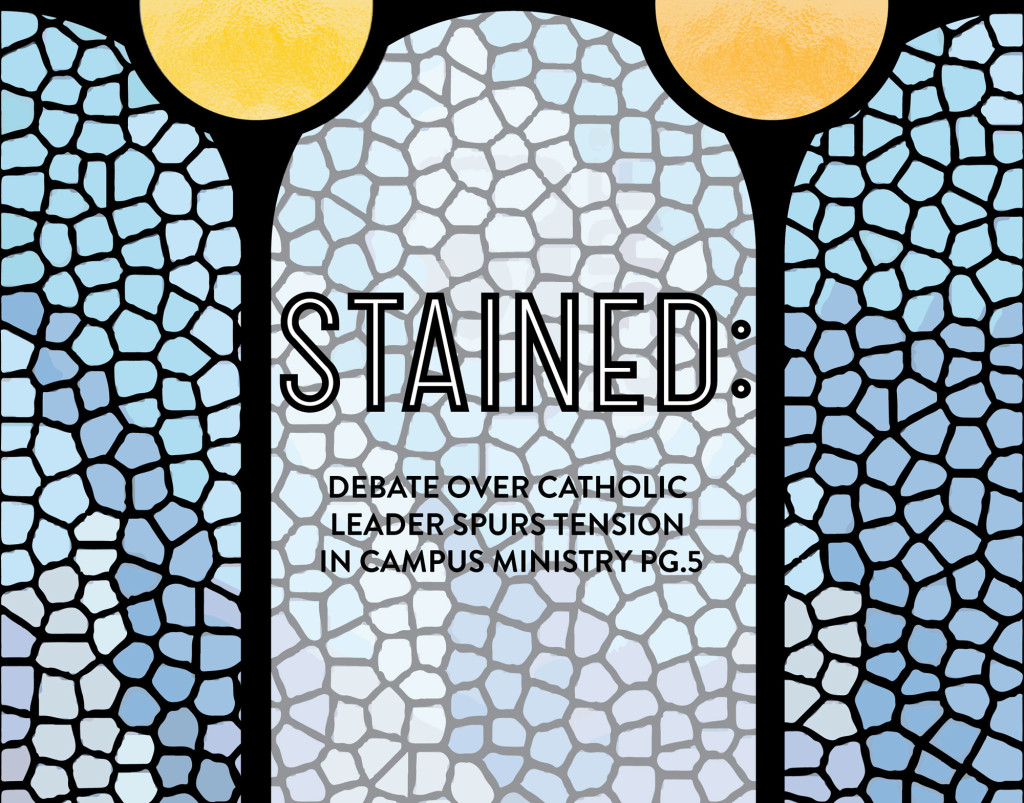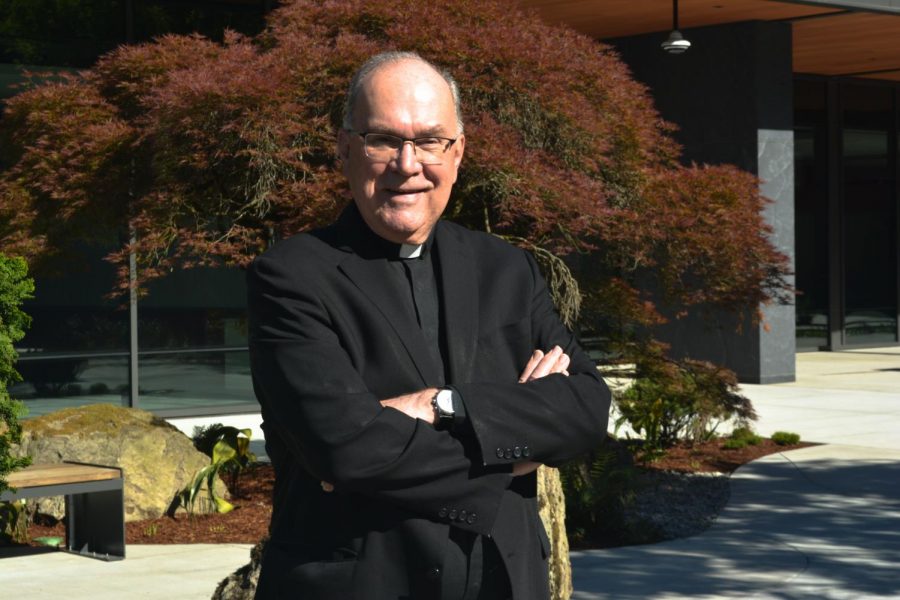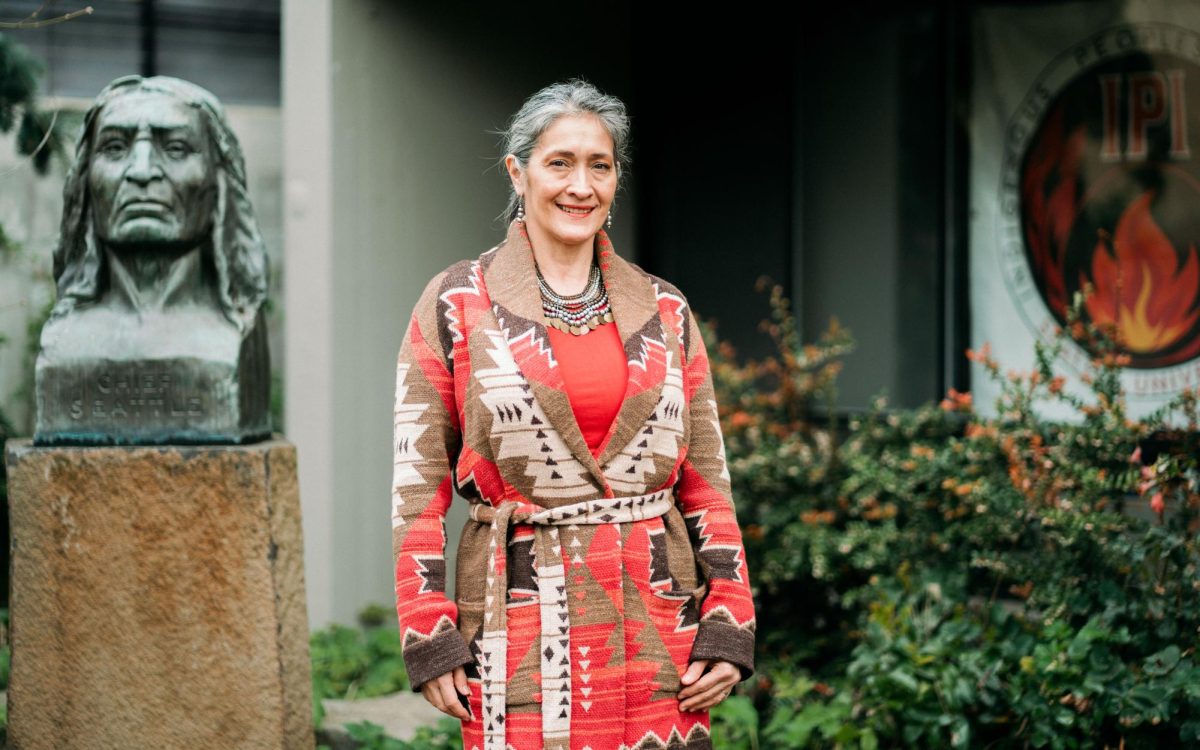Seattle University prides itself on hiring from a very diverse applicant pool. So when word got out that Mission & Ministry would require Campus Ministry’s new director to be a Roman Catholic, students were talking, to say the least.
The requirement raised concerns among Campus Ministry employees and students who say such a condition is limiting the pool and ignoring the large non-Catholic population at Seattle U.
“Specifically, I think limiting this job to a Roman Catholic requires a more limiting scope, that might exclude very qualified applicants,” said Rachel Liuzzi, the Student Campus Minister for Public Relations.
With this prerequisite, Campus Ministry could be restricting their outreach to those non-Catholic students, said student ecumenical campus minister Monica Allen.
“We’re Jesuit, that means we value all perspectives,” Allen said. “That means we want to serve everyone. But things like this send the message that we’re really not for everyone.”
Such a sentiment can make non-Catholics, particularly those in Campus Ministry such as Allen, feel marginalized. Multifaith student campus minister Ada Rinne shares Allen’s frustrations with the applicant requirement.
According to Rinne, spiritual representation in the Campus Ministry office for non-Catholics is “deeply inadequate.” Rinne pointed out that a survey put out by Campus Ministry last spring found that only 30 percent of students identify as Catholic.
“Many of the programs that Campus Ministry offers in terms of retreats have a very Christian focus to them and I think that can be very unaccommodating to people who were not raised in that tradition or who do not follow those practices at this time,” Rinne said. “Campus Ministry should be more focused on the needs of all students, not only the needs of exclusively Catholic students.”
According to Rinne, the requirement indicates that Catholic students are a priority for Campus Ministry.Though most students are not Catholic, it is an essential part of the school’s identity, said Fr. Peter Ely, S.J., who is overseeing the director hiring process.
“Seattle University is a vibrant, open campus… it is also Catholic. This is not a non-denominational institution,” he said. “Our religious affiliation can serve as a host for these conversations. Buddhists, Muslims, Atheists, et cetera; because of our religious affiliation we have an automatic connector between all faiths. Students always tell me they feel more connected with their beliefs because of the university’s religious host.”
A student campus minister of liturgy, Camille Kammer also understands the concerns, but believes that the decision for the Catholic requirement is not unusual.
“We should not deny there is tension about the fact that the director of campus ministry has to be a Roman Catholic. I think we might be doing ourselves a disservice by making that a requirement,” Kammer said. “But it makes sense. This is a Catholic university. The good thing is we, as student campus ministers, are able to be a part of the interview process for this new position.”
Another frustration behind the requirement is that it was only recently instated five years ago, said Allen, when a non-Catholic campus minister was a strong candidate in line to take the position.
“It’s hard not to feel like the change was made to keep that person out,” Allen said. The requirement becomes a problem because it goes against the Jesuit mission of inclusiveness and open-mindedness, Rinne said.
“Part of our Jesuit mission and identity is to provide resources for all students, and I think it’s really disappointing when our Jesuit mission and values are used to justify discriminatory hiring practices and the underprioritization of non-Catholic students at this school,” Rinne said.
But according to Sara Bernard-Hoverstad, student campus minister for faith and formation, having a Catholic director doesn’t necessarily mean that such a mission or identity is missing. In fact, under the current Catholic director, there are still a number of programs that reach out to the multifaith community.
“We are explicitly clear about the office being, and all of our programs being, accessible to students of every background including the LGBTQ community, including non-Catholic students. I know that’s sometimes a little bit controversial in a Catholic context,” said Bernard-Hoverstad. “A Catholic director does not mean that the multifaith work and the inclusiveness will stop. In fact I hope we find a director who will foster the same great work.”
To Rinne, however, it is not a matter of whether or not a Catholic or non-Catholic applicant could better serve the community. The issue lies in the fact that a requirement exists at all, making the applicants’ qualifications reliant on their faith.
“Just as a non-Catholic director would be able to support Catholic programming I think that a Catholic could also support non-Catholic programming, but I think the concern is that the directorship is closed to everybody. It’s sending the message that personal faith is a key qualification for this job,” Rinne said.
Regardless of who is chosen in the position, Rinne would like to see more dialogue and programming within the non-Catholic population in order to figure out solutions to any marginalization these students may be feeling.













